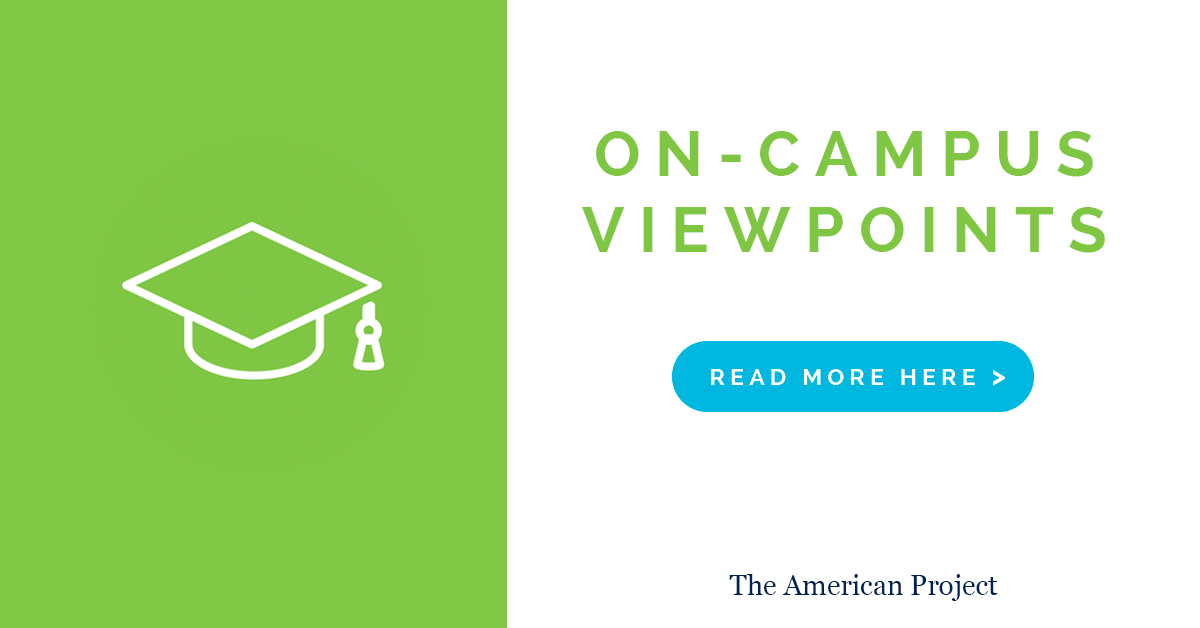Writers give talks at universities all the time — but when Charles Murray, author of “The Bell Curve,” comes to campus, activists come to protest.

On Campus / Viewpoint Diversity
One-off events featuring conservative speakers will not suffice in cultivating greater levels of intellectual diversity in a system of higher education known for its left-leaning orthodoxy. What schools need rather, is an affirmative-action program that will give conservative ideas the consistent, serious treatment that they deserve.
The soft totalitarianism seen repeatedly on American campuses is not, as many say, a psychological dysfunction produced by helicopter parenting. At the core of campus intolerance lies a worldview that encourages students to view themselves as existentially oppressed and justifies, in turn, the forceful silencing of contrarian opinion.
Another high-profile act of campus censorship — amid a coast-to-coast spate of student assaults on free speech the last two years — occurred in late September at the College of William & Mary. Undergraduates there shut down a lecture on “Students and the First Amendment” by chanting, among other things, “Liberalism is white supremacy.” President Taylor Reveley promptly issued a statement affirming the college’s “powerful commitment to the free play of ideas.” That did little to disturb the eerie silence of most faculty and administrators around the country in the face of free speech’s travails.
As politically charged demonstrations flare up on campuses across the country, school administrators, often at the behest of legislators, are thinking of new ways to inform students on how to properly handle free expression and debate.
A recent campus-wide field survey at Dartmouth College found that students who identified as Democrats are the least tolerant of opposing political views. While a large majority (69 percent) of students who identified as Republicans said they were comfortable rooming with someone of a differing political persuasion, nearly half of those who identified as Democrats (45 percent) indicated that they were uncomfortable.
Much of what afflicts the Left, and the modern university more perceptibly, can be traced to a single essay by Herbert Marcuse. “Repressive Tolerance,” penned in 1965, brought forth the idea that repression and censorship are justified for the sake of a new tolerance to come.
While I really appreciate The Vanderbilt Hustler giving me this opportunity to share my beliefs and values, I believe that our school’s main newspaper is ignoring our conservative and right-of-center students. My main reason for writing this is the Hustler’s endorsement of gun control following the tragedy in Las Vegas last weekend, but this was not the first example of the Hustler taking a partisan and controversial official position that could alienate students.
If you follow free-speech controversies for any length of time, you’ll understand two things about public opinion. First, an overwhelming percentage of Americans will declare their support for free speech. Second, a shocking percentage of Americans also support censoring speech they don’t like. How is this possible? It’s simple. “Free speech” is good speech, you see. That’s the speech that corrects injustices and speaks truth to power. That other speech? The speech that hurts my feelings or hurts my friends’ feelings? That’s “hate speech.” It might even be violence.
The student newspaper’s simple request that the school introduce more diverse thought is one many universities should heed.
Featured
On Campus / Viewpoint Diversity
Vice News ● By Vice News
Bell Curve author says students today are too easily “triggered”
The Wall Street Journal ● By Heather Mac Donald
Those ‘Snowflakes’ Have Chilling Effects Even Beyond the Campus
The Christian Science Monitor ● By 08/04/2017
Welcome to orientation, freshmen: Here’s a copy of the Constitution
National Review ● By David French
College Students: Speech Can Be Violence
The Wall Street Journal ● By Michael S. Roth
The Opening of the Liberal Mind
RealClear Politics ● By Peter Berkowitz
What Colleges Must Do to Promote Diversity…of Thought
The Federalist ● By Bre Payton
Dartmouth Study Finds Democrats Are The Least Tolerant Students On Campus
The Vanderbilt Hustler ● By Matt Colleran
Let’s Rebuild Trust Between Conservative Students and Vanderbilt
National Review ● By Mark Judge